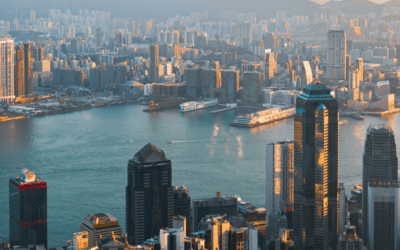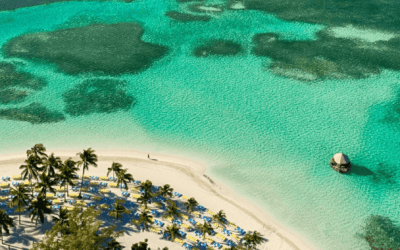Here at Nomad Capitalist, we are about going where you are treated best, which includes legally finding ways to avoid paying taxes.
We travel the world looking for places that roll out the welcome mat for foreign investment, making it easy to grow your wealth, diversify and keep more of your own money.
The idea behind capital gains tax – taxing a profit from the sale of real property or financial holdings like stocks and bonds – is a significant consideration when choosing where to invest and how to maximise your offshore strategy.
It’s our considered view here at Nomad Capitalist that paying capital gains tax is not only frustrating but also discourages investment and stands in the way of capital from reaching its highest potential.
We’ve discussed extensively which countries charge the highest capital gains tax rates, but we know that savvy investors will also want to know which jurisdictions they can invest in to take advantage of favourable capital gains tax rates.
Around the world, many countries impose no taxes on capital gains whatsoever. That list includes the usual players like Barbados and tax havens like the Isle of Man but also includes a few surprises like Egypt and Iran.
That’s where our focus lies – in countries that are friendly to expats and offer a high quality of life.
For an investor looking to hold stocks and other investments in their own name rather than an offshore corporation, the countries listed below carry no capital gains taxes and may also provide key bases for your Nomad lifestyle plan.
These nine nations offer appealing tax incentives and exemptions on capital gains, making them popular choices for investors and entrepreneurs. Some lead with no capital gains tax on securities trades, while other popular tax havens levy no capital gains at all and yet more base charges on various factors and exceptions. Let’s start with one of the most welcoming environments for international business and investors.
9. Suiza
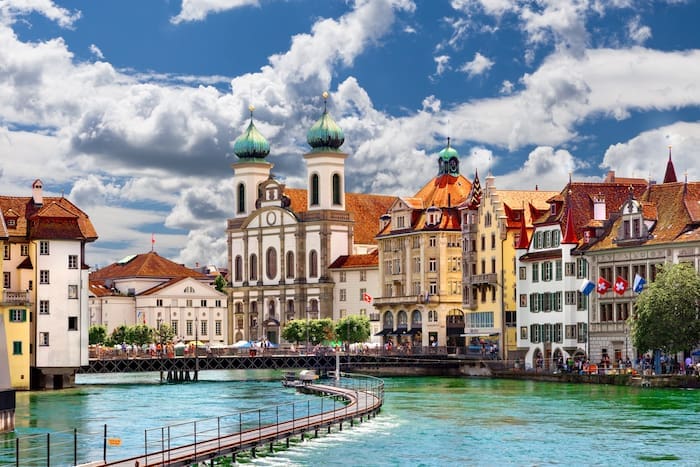
Switzerland, one of the world’s renowned centres for banking and stores of wealth, makes the list with no capital gains tax on securities trades.
Gains from selling private property are not federally taxable, while gains from business properties are taxed as income taxes. Cantonal and municipal taxes are imposed on both types of property.
Switzerland taxes capital gains on other investments and stocks if you’re trading for a living, but otherwise, there are no capital gains.
Suiza grava las plusvalías de otras inversiones y de las acciones si se comercia para vivir, pero por lo demás, no hay plusvalías.
Con los tipos impositivos progresivos de Suiza, cuanto más tiempo se posea una propiedad, menor será el impuesto. Las disposiciones cantonales se aplican a los bienes inmuebles, con una carga fiscal que oscila entre el 25 % y el 50 %. Tras cuatro o cinco años de titularidad, se permite una desgravación máxima del 50 % al 70 % del impuesto exigible.
Short-term gains of up to 50% may be imposed for properties sold within the first four or five years.
8. Singapur
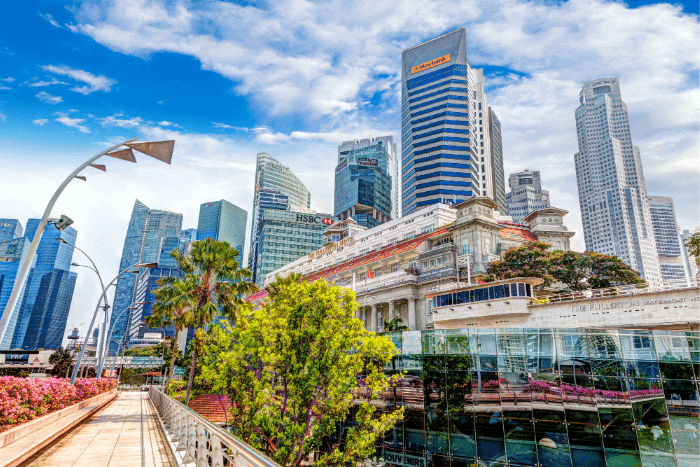
Singapur vuelve a sumarse a la lista de naciones que ofrecen incentivos competitivos para empresarios y capitales.
The thriving city-state continues to attract foreign capital with its strong banking security and alluring tax incentives. As it stands, there is no capital gains tax in Singapore. However, effective January 1, 2024, Singapore will start taxing foreign-sourced disposable gains, including capital gains from the sale of foreign assets.
The move represents a significant shift in Singapore’s tax system, which previously only taxed revenue-based foreign-sourced income. The determination of whether an entity has ‘economic substance’ in Singapore will be assessed on a case-by-case basis.
While some aspects of financial policy have become tighter for expats and newcomers to the country, Singapore remains a solid choice among English-speaking, low-tax nations for the time being.
7. Islas Caimán
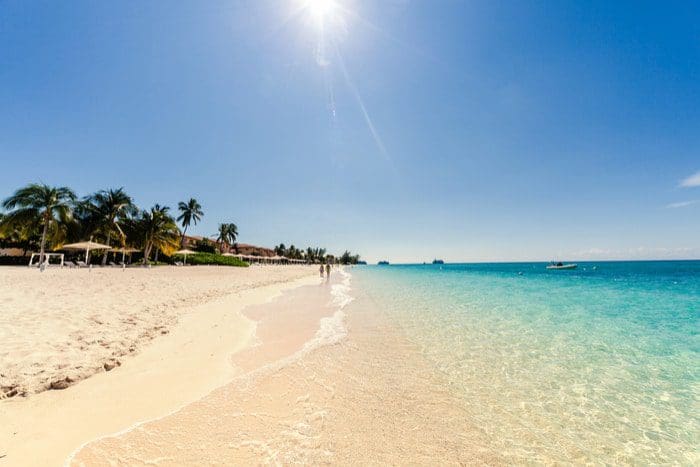
The Cayman Islands is a well-known tax haven and overseas banking hub. As one might expect from this pro-growth jurisdiction, no capital gains taxes are charged on any transaction here.
Other jurisdictions may tax Cayman Islands entities, but the British overseas territory will not impose an additional tax burden on capital gains itself.
This English-speaking island nation offers an excellent business environment for foreign investors, bolstered by a high quality of life and all the perks of living in the Caribbean with its solid tourism infrastructure.
6. Mónaco
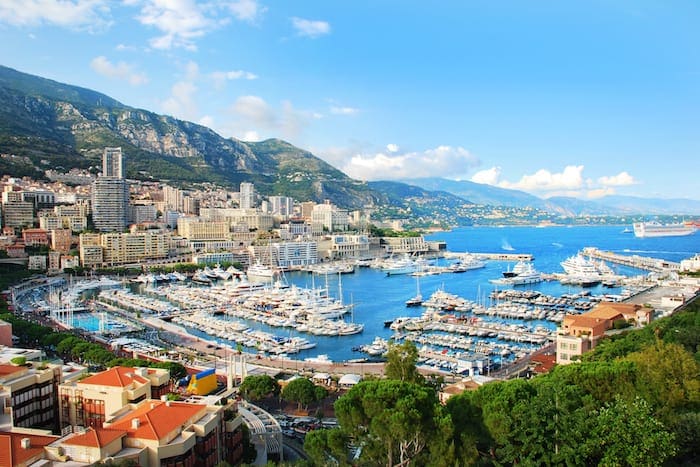
Glamorous Monaco is one of the world’s most famous tax havens and has long been a magnet for the ultra-wealthy.
The tiny nation imposes no capital gains taxes except for French citizens.
Monaco understands the benefits of making a tax and business environment that is attractive to foreign wealth; thus, capital gains are not taxed.
The Principality offers many paths to residency and may be a valuable part of your capital gains strategy if you are a high-achieving entrepreneur looking to elevate your investments.
5. Bélgica

Bélgica es la prueba fehaciente de que la fuga de capitales es real.
Many wealthy individuals have fled here: Actor Gerald Depardieu famously moved a few miles over the French border to escape France’s high-income tax regime.
While Belgium may not be completely tax-free, its personal income tax rates are certainly more favourable than those of its neighbour, France.
Bernard Arnault, the billionaire head of luxury giant LVMH, also moved from France to Belgium for ‘family inheritance reasons’, but most surmised it was to avoid a new ‘super tax’ imposed by French socialists.
It’s essential to note capital gains in Belgium are not 100% tax-free. The deciding factor on whether capital gains are taxable is whether they are realised privately or can be attributed to business or professional activity.
Generally, capital gains are not taxed if they can be considered part of the normal private management of personal assets. However, ‘normal’ is largely subjective and often determined by case law on an individual basis.
If, for instance, you sell your shares shortly after acquiring them or there is a significant difference between the purchase and sales price, your activity may constitute speculative intention and subject you to a 33% capital gains tax.
Capital gains realised by a company are subject to the normal corporate income tax rate of 25%. Other capital gains that involve ‘substantial participation’ will be taxed at a rate of 16.5%.
Special rules also apply to mergers and splits, the losses and shares of trading companies, capital gains derived from IP, embedded royalties and infringement compensation.
There are many caveats and exceptions, but all private capital gains on shares are generally exempt from tax except for fixed-income securities.
Tu vivienda particular también está exenta de impuestos siempre que la hayas ocupado durante al menos un año antes de venderla. Cualquier otro inmueble vendido en los cinco años siguientes a su compra se grava con un tipo del 16,5 %. En caso contrario, también está exento de impuestos.
Capital gains from the sale of undeveloped land are taxed at a rate of 33% unless the land is sold after holding it for at least eight years.
Finally, if you benefit from the expatriate special personal income tax regime, the rules apply only to Belgian-source capital gain tax.
Belgium isn’t exactly a low-tax country, even by European standards, and as you can see, the capital gains landscape is tricky to negotiate. However, its (mostly) zero capital gains rate makes it one of the more attractive jurisdictions in Europe and Nomad Capitalist is here to help you overcome any obstacles that pop up.
4. Malasia
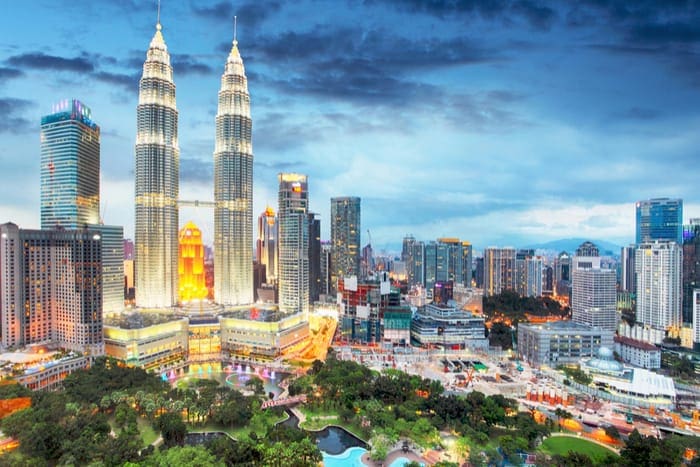
Like its neighbour Singapore to the south, Malaysia does not tax capital gains on equities, having abolished its capital gains tax on real estate back in 2007.
Malaysia has moved away from being a strictly territorial basis of taxation to the worldwide tax system mainly adopted by progressive countries.
But to cool ‘flipping’ transactions in the hot Kuala Lumpur and Johor Bahru markets, the Malaysian government has effectively imposed a de facto capital gains assessment on real estate. This requires non-residents to hold properties for at least five years or face a 30% tax withholding on gains under what is called a ‘real property gains tax’.
In addition, effective January 2024, the Malaysian government will implement a capital gains tax and a tax on high-value goods. This decision comes in the wake of a slowdown in Malaysia’s economy. A capital gains tax of 10% will be imposed on the sale of unlisted shares starting from March 1, 2024. A 5–10% tax will also be introduced on luxury goods, although the specific value of goods subject to this tax has not yet been determined. The tax on services will also be increased from 6% to 8%, excluding certain services like food and beverage and telecommunications.
3. Nueva Zelanda
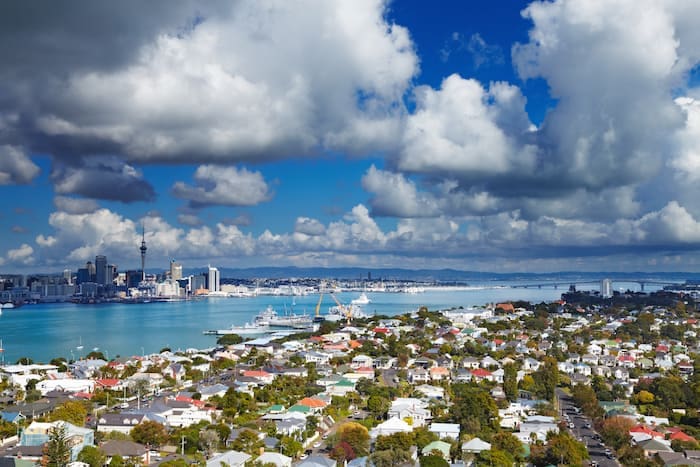
One of only six ‘free’ economies in the world, according to the Heritage Foundation, New Zealand offers investors and entrepreneurs stability and independence and is a growing ‘safe-haven’ jurisdiction for assets.
New Zealand does not impose a capital gains tax on the sale of equities or other investments. It does have a formal law stating that real estate purchased for the express purpose of resale can be made subject to capital gains taxes. However, this law is rarely enforced.
2. Belice
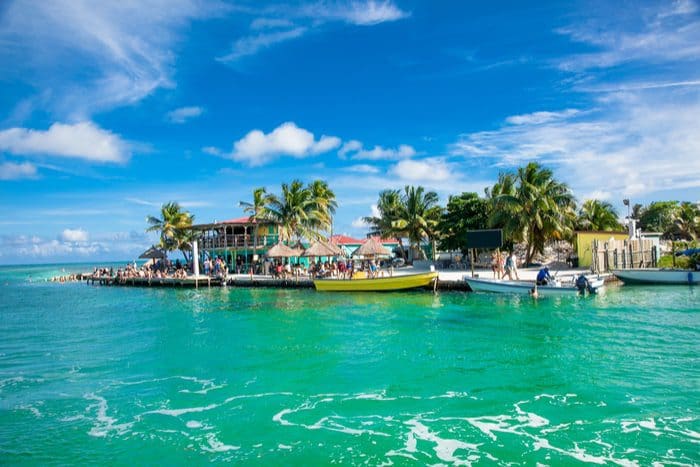
Situado no muy lejos de las playas turísticas de Cancún y la península de Yucatán, Belice es un paraíso para extranjeros desde hace décadas.
Since winning its independence from Britain in 1981, the country has made itself one of the more attractive places for expats with cash.
The country is competing in a tough market with various second residency options available in other Central American countries. But considering Belize is a small, independent, English-speaking country, it’s no surprise so many expats flock there.
Boasting zero capital gains taxes for residents and non-residents alike doesn’t detract from its appeal.
1. Hong Kong
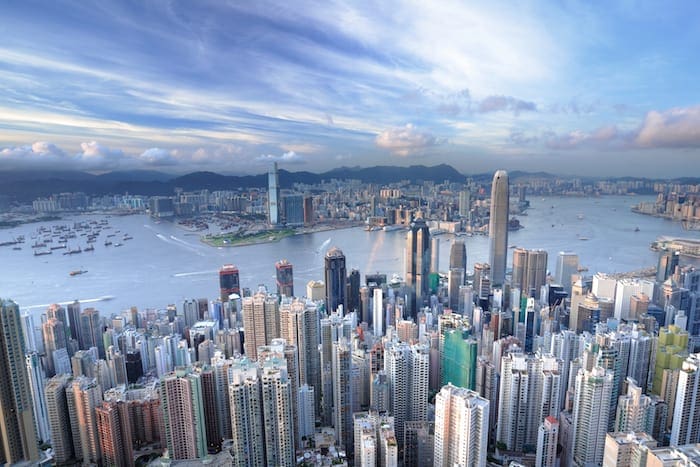
Hong Kong is one of the best places on earth for investors. The Special Administrative Region of China is a bastion of expats, with bankers and professionals worldwide.
Ve a cualquier bar de copas un miércoles por la noche y es más probable que te encuentres con alguien de Long Island que de la isla de Hainan.
Hong Kong does not tax capital gains as part of its tradition of respect for capital, but, as with every rule, there are exceptions.
Among these are shares issued to employees as part of a pay package – these are taxed at the city’s flat income tax rate.
The potential issue with this concerns expats who leave before receiving all proceeds from their shares – they will likely owe tax in two countries, as Hong Kong has few dual taxation treaties. So, it pays to be careful and plan for such contingencies. Unrestricted shares and options are free from capital gains taxes.
For investors, Hong Kong is one of the world’s most crucial financial markets, though it’s also worth bearing in mind that the current political situation is far from ideal. Officially, Hong Kong still operates under the ‘one country, two systems’ policy, though this has come under strain in recent years, emphasising the importance of diversification.
As Nomad Capitalist consistently advises clients, never put all your eggs in one basket: Even the freest economy in the world can fall prey to draconian government rule and other crises.
But with careful planning, you can protect your assets and weather any storm that comes your way. Talk to Nomad Capitalist about creating your crisis-proof, holistic Plan De Acción today.
Consideraciones fiscales sobre la plusvalía
This list aims to get a bird’s-eye view of which global destinations you might choose to invest time and effort in to avoid paying unnecessary tax on capital gains.
We firmly believe that opportunity comes in many forms.
You may be surprised by some of the countries on this list offering incentives for high-achieving entrepreneurs like you who want to be smart about the internationalisation strategy.
We have not covered every country: For instance, no British Crown Dependencies nor most British Overseas Territories (CDOTs) apply a capital gains tax.
So, our list is not exhaustive. But it makes the point that many locations want your business and money and are willing to create attractive tax incentives to facilitate both. All that’s left is to determine which jurisdictions work best as part of your offshore strategy.
But, as we constantly remind clients, this is a problematic international landscape to negotiate, which is where we come in.
Here at Nomad Capitalist, we’re committed to finding you the best places in the world where you can grow and keep more of your wealth. If you want to learn more about building your nomad strategy, reach out to our team today.




